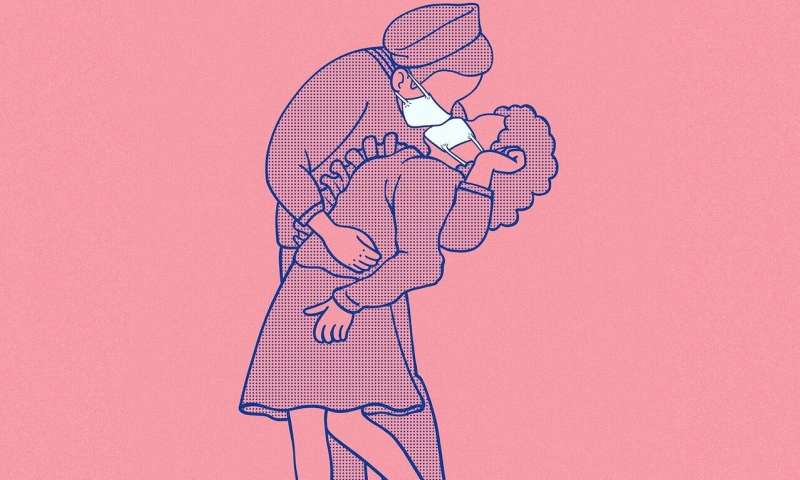
One consequence of the COVID-19 pandemic is that more families are putting off their children’s preventive care visits, causing pediatric providers to worry about missed vaccines.
In a recent study published in Pediatrics, researchers at Nationwide Children’s Hospital evaluated changes in measles vaccination rates from before the pandemic to this summer, when return for clinical care was encouraged. Finding a steep and lasting decline, the researchers are making efforts to improve timely vaccination and provide safe catch-up opportunities to children in their pediatric primary care network.
“We have seen a resurgence of measles outbreaks in the U.S. and here in Ohio in recent years because fewer people have chosen to immunize,” said the study’s lead author Sara Bode, MD, a primary care pediatrician and medical director of Nationwide Children’s Care Connection School-Based Health and Mobile Clinics. “We were concerned that with the pandemic, vaccination rates could fall further and there could be a real risk of a measles outbreak that could affect everyone in the community.”
Nationwide Children’s pediatric primary care network includes 12 clinic sites in Columbus, Ohio, providing care to about 100,000 patients. Dr. Bode and her colleagues examined the proportion of these children with measles/mumps/rubella (MMR) vaccination by age 16 months from March 2017 through August 2020.
They found about a 10 percent drop in the number of children who had received their first MMR vaccine. The decline began in March 2020, when the state had its first stay-at-home order. Concerningly, this pandemic-related decline in vaccination persisted through August 2020, even as clinics reopened for wellness visits.
Alex Kemper, MD, MPH, MS, division chief of primary care pediatrics at Nationwide Children’s and a co-author on the study, said that a key message he and his colleagues want to get across is it is safe to come back to the clinic for preventive care.
“We are doing a lot of work to let our patients and families in the community know it is safe to come in for wellness visits,” said Dr. Kemper. “We have prioritized these visits and opened up additional appointment slots throughout the day and evening.”
Nationwide Children’s is also working with community wellness and school health partners to offer alternative places for children to receive catch-up vaccinations, including mobile and pop-up clinics. However, Dr. Kemper cautions that separating vaccination from the full range of preventive services is not ideal.
“We recognize that wellness visits provide important opportunities to assess growth and development, and talk to families about issues like mental health, nutrition and exercise in these challenging times,” said Dr. Kemper, also a professor of pediatrics at The Ohio State University College of Medicine.
Dr. Bode agrees that reaching out to the community and assuring families that preventive visits are safe will be an important component of getting patients back to the clinics.
Source: Read Full Article